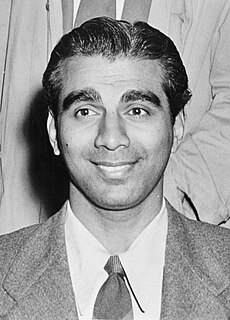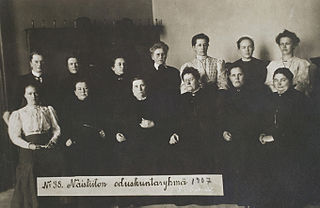The recorded history of Guyana can be dated back to 1466, when Guyana de Ojeda's first expedition arrived from Spain at the Essequibo River. The history of Guyana has been shaped by the participation of many national and ethnic groups, as well as the colonial policies of the Spanish, French, Dutch, and British. The African slave rebellions in 1763 and 1823 were seminal moments in the nation's history. Africans were enslaved and transported to Guyana as slaves; in contrast, East Indians came as indentured labourers. Guyana's recent history is characterized in particular by the struggle to free itself from colonial rule, and from the lingering effects of colonialism.

Cheddi Berret Jagan was a Guyanese politician who was first elected Chief Minister in 1953 and later Premier of British Guiana from 1961 to 1964, prior to independence. He later served as President of Guyana from 1992 to 1997. He is widely regarded in Guyana as the "Father of the Nation".

Janet Rosenberg Jagan was the first female President of Guyana, serving from December 19, 1997, to August 11, 1999. She previously served as the first female Prime Minister of Guyana from March 17, 1997, to December 19, 1997. The wife of Cheddi Jagan, whom she succeeded as president, she was awarded Guyana's highest national award, the Order of Excellence, in 1993, and the UNESCO Mahatma Gandhi Gold Medal for Women's Rights in 1998.

Linden Forbes Sampson Burnham was a Guyanese political leader and leader of Guyana from 1964 until his death, as the first Prime Minister from 1964 to 1980 and as second President from 1980 to 1985. He is widely regarded as a strongman who fought for nationalism and encouraged Guyanese to manufacture and export more local product.

Elections in Guyana take place within the framework of a multi-party representative democracy and a presidential system. The National Assembly is directly elected, with the nominee of the party or alliance that receives the most votes becoming President.

Donald Rabindranauth Ramotar is a Guyanese politician who was President of Guyana from 2011 to 2015. He was also the General Secretary of the People's Progressive Party (PPP) from 1997 to 2013.

The Constitution of Guyana is the highest governing document in the Republic of Guyana. It came into effect on October 6, 1980, replacing the constitution enacted in 1966 upon its independence from the United Kingdom. The current Constitution of Guyana contains 12 chapters that are further divided into 232 articles. It also contains a preamble and an oath. Since its 1980 enactment, it has gone through multiple amendments.

General elections were held in British Guiana on 7 December 1964. They saw the People's Progressive Party win 24 of the 53 seats. However, the People's National Congress and United Force were able to form a coalition government with a working majority. Despite losing the elections, Prime Minister and PPP leader Cheddi Jagan refused to resign, and had to be removed by Governor Richard Luyt, with Forbes Burnham replacing him. Voter turnout was 97.0%.

General elections were held in British Guiana on 12 August 1957. The result was a victory for the faction of the People's Progressive Party led by Cheddi Jagan, who remained Prime Minister.

General elections were held in British Guiana on 21 August 1961. The result was a victory for the People's Progressive Party, which won 20 of the 35 seats.

The National Labour Front (NLF) was a political party in Guyana.

General elections were held in British Guiana on 24 November 1947. The British Guiana Labour Party emerged as the largest party, winning five of the 14 seats. Voter turnout was 71%.

General elections were held in British Guiana in September 1930.

General elections were held in British Guiana on 15 October October 1926.

The Manpower Citizens' Association was a trade union and political party in British Guiana.

The Political Affairs Committee (PAC) was a political party in British Guiana.









